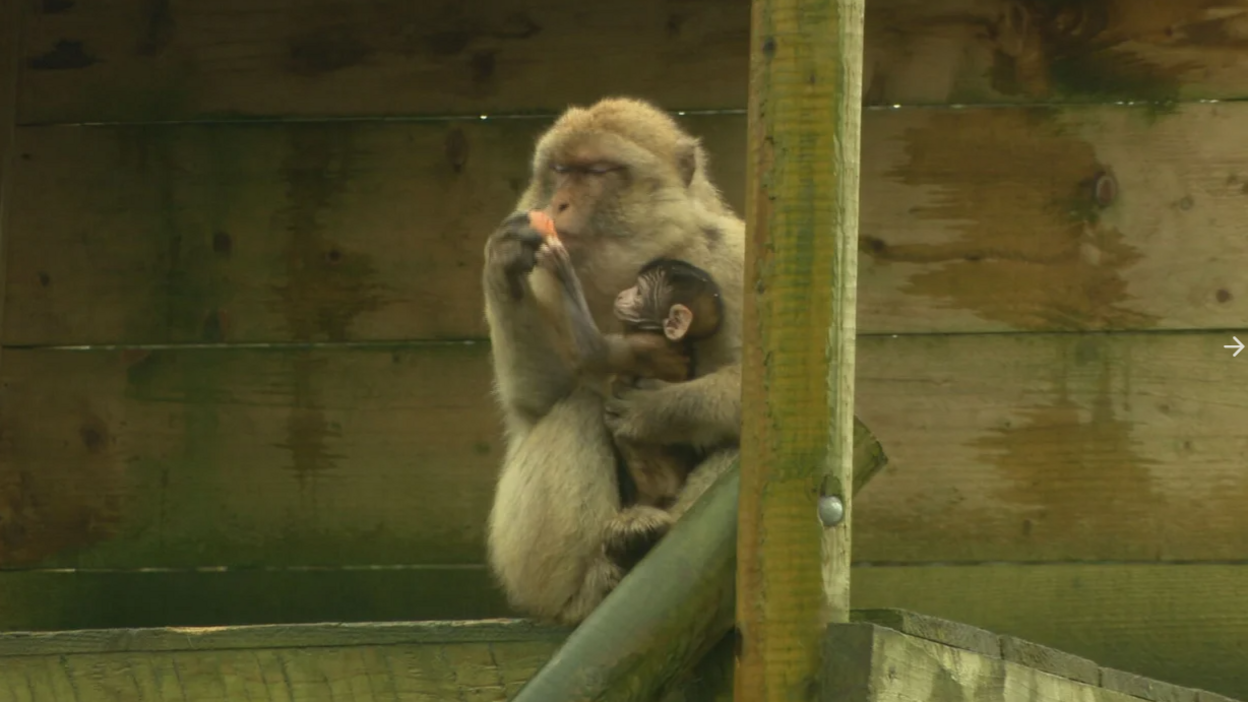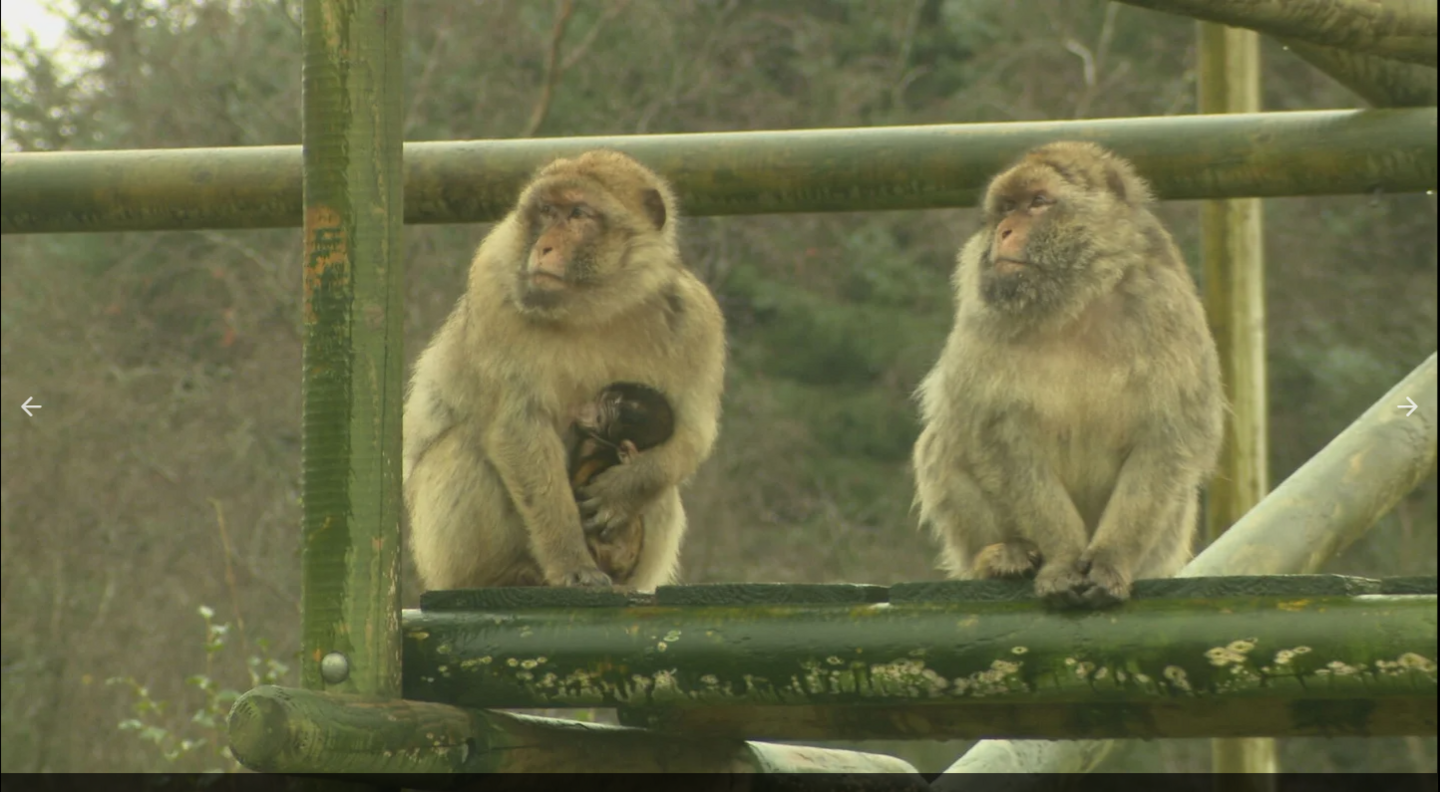Endangered monkey born in County Donegal

Staff have not yet been able to determine if the new arrival is male or female
At a glance
A baby Barbary macaque has been born at the Wild Ireland wildlife park
The park says the birth is of international importance
Barbary macaques are the only non-human primates found in Europe
They are listed as endangered by the International Union for Conservation and Nature
- Published
A wildlife park in the Republic of Ireland is celebrating the birth of a rare Barbary macaque.
Wild Ireland in County Donegal said the birth was an "event of international importance in the fight against extinction".
"The birth of any endangered species is a huge deal," said Killian McLaughlin from Wild Ireland.
Barbary macaques are part of the only species of monkey native to Europe and are most famously found in Gibraltar.
Mr McLaughlin from Wild Ireland told BBC News NI that the baby was born in recent weeks.
But staff have not been able to get close enough to determine if its male or female.
"Wild animals are very good at hiding pregnancies but we had a suspicion," he said.
"[The baby’s mother] was eating a lot more than she usually does and she was just behaving differently. We came in one morning and there he or she was.
"It's really a delight," he added.

The baby's parents arrived in Donegal almost two years ago
The wildlife park now has a family of five Barbary macaques.
The new arrival was born to mother Sandy and father Azon who came to the park along with the baby’s sister Ellie and grandmother from France almost two years ago.
Mr McLaughlin said: "To see a little baby and new life, an animal who will hopefully grow up in a relatively natural environment - to see that, we see it come full circle.
"Now we have a family group who live on an island in the sanctuary – it's wonderful," he added.
Barbary macaques are the only non-human primates found in Europe but the majority live in Morocco and northern Algeria in Africa.
The population is decreasing and they are listed as endangered by the International Union for Conservation and Nature